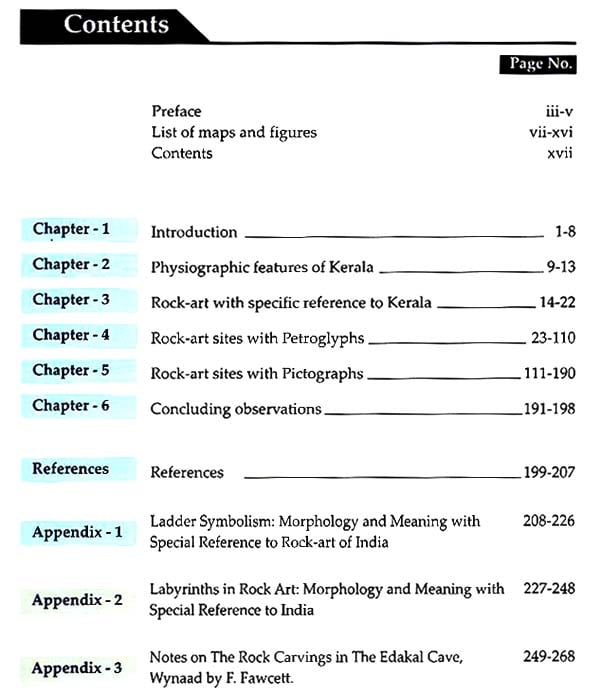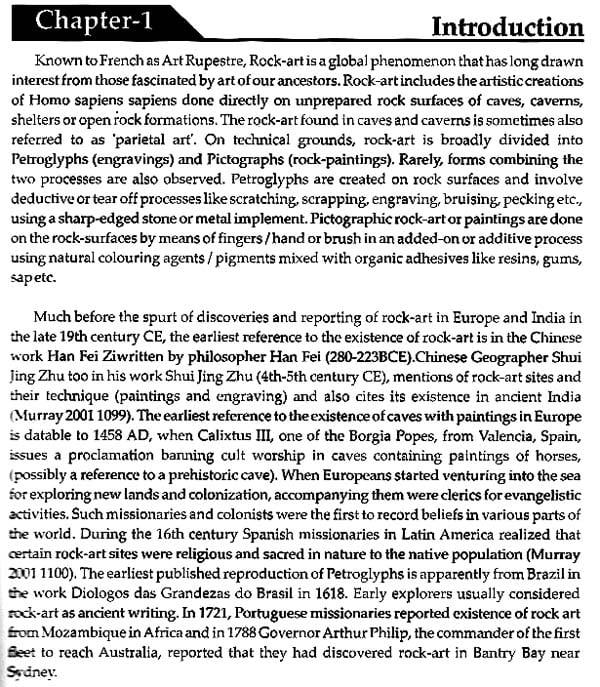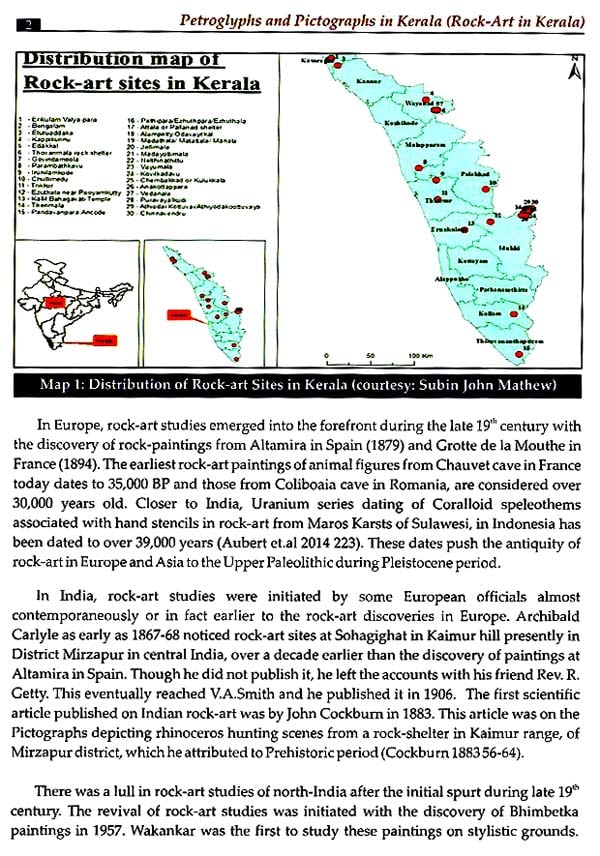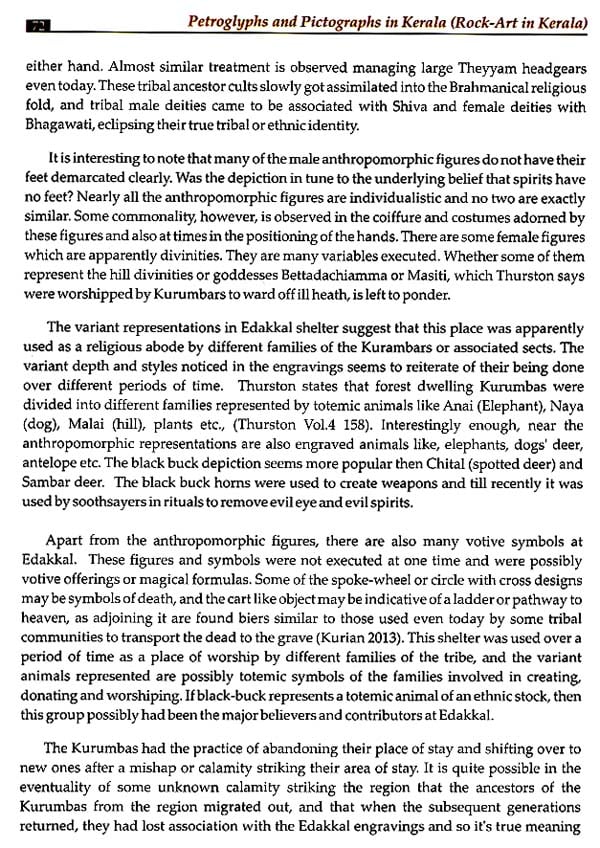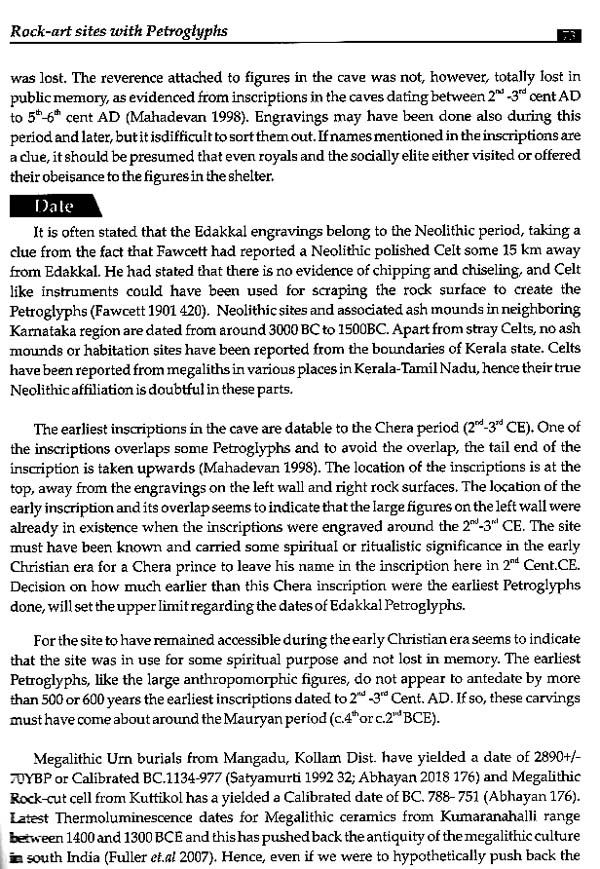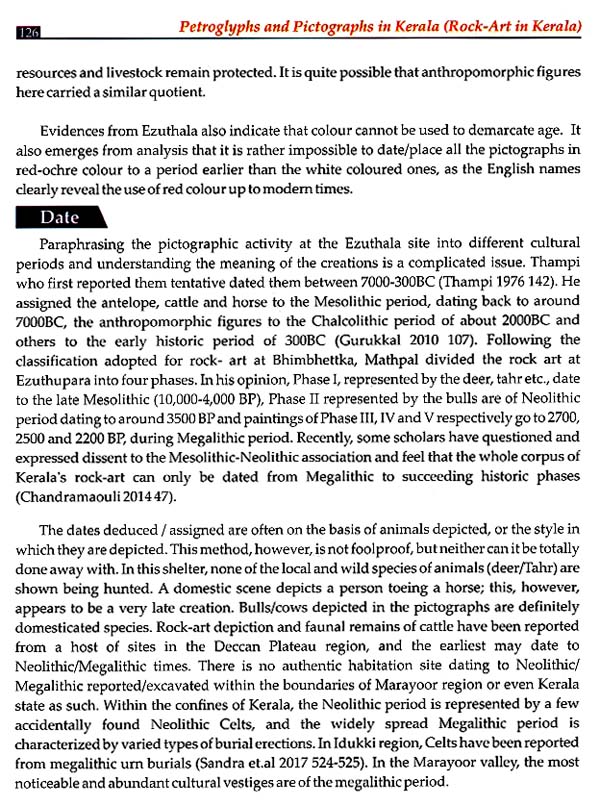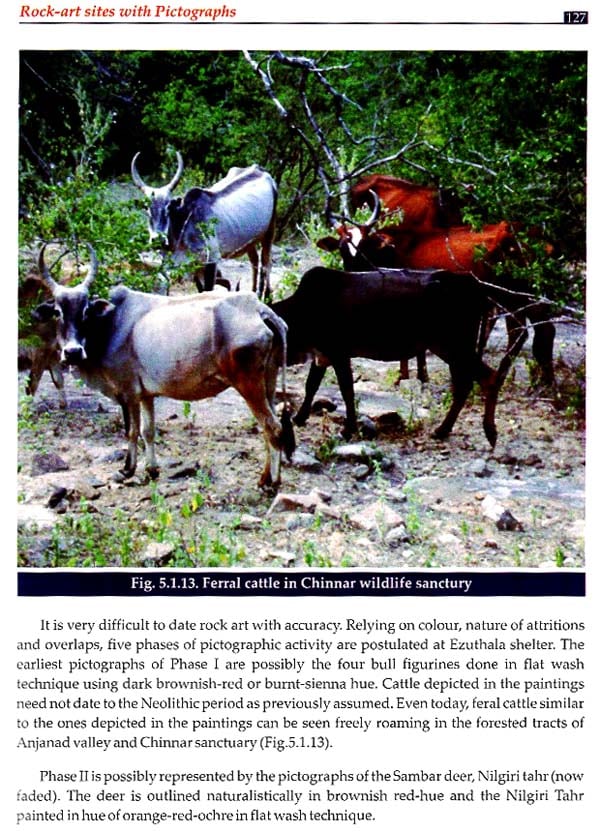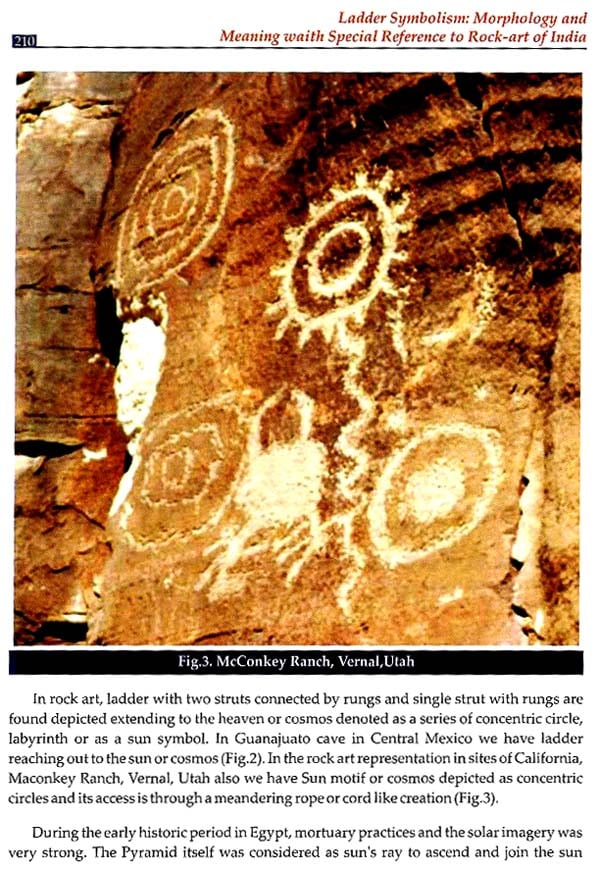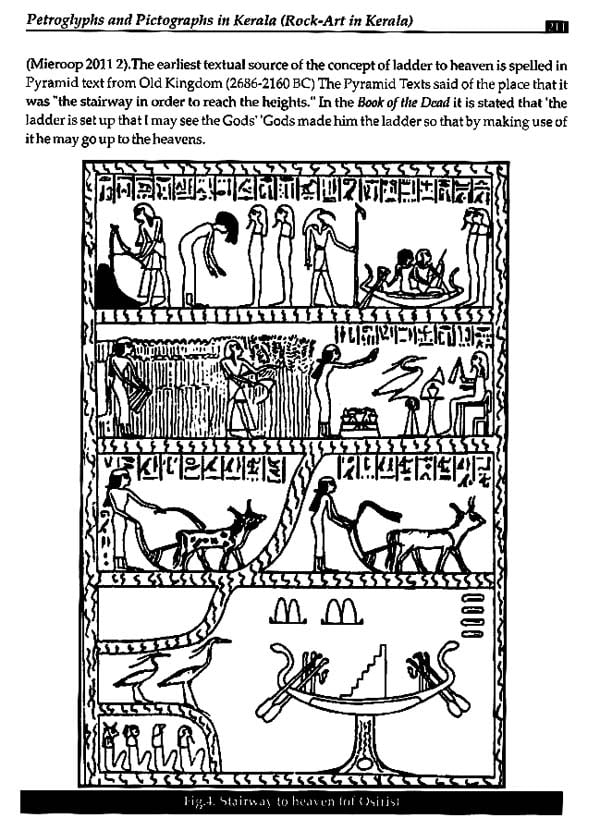
Art Rupestre: Petroglyps and Pictographs in Kerala (Rock Art in Kerala)
Book Specification
| Item Code: | NAV575 |
| Author: | Ajit Kumar and Raj K Varman |
| Publisher: | NEW BHARATIYA BOOK CORPORATION |
| Language: | English |
| Edition: | 2019 |
| ISBN: | 9788183153478 |
| Pages: | 290 (Throughout Color and B/W Illustrations) |
| Cover: | HARDCOVER |
| Other Details | 11.00 X 9.00 inch |
| Weight | 1.40 kg |
Book Description
Known to French as Art Rupestre, Rock-art is a global phenomenon. The enigmatic artistic creations in Rock-art arc generally found as Petroglyphs and Pictographs on rock surfaces either in the open or within shelters or caves. To comprehend the objectives and meaning behind their creations is a subject matter of many researchers and deliberations. Apart from the interpretations we make of them, the mindset of the rock art's creator will never be truly understood.
Rock-art was first reported from the present state of Kerala as early as 1901. Today there are over 30 rock-art sites with Petroglyphs and Pictographs in Kerala. This book attempts a holistic review of Petroglyphs and Pictographs from previously know and recently noticed sites in Kerala. The book discusses 15 sites each with Petroglyphs and Pictographs. Discussion at each sites deals with approach to the site, its environmental settings, motifs, observations, their possible dates and conservation issues.
Included in the appendix are already published articles on ladder and labyrinths motifs noticed in rock art.
Dr. Alit Kumar 011959) joint the University of Kerala am founded the Deportment of Archaeology in 1997. He is currently the Professor and Head of the Department of Archaeology and also the Director, School of Said Sciences, in the University of Kerala.
Raj K Varman(b.1994) did his graduation from Kerala University and has o Frankfinn Diploma in Aviation, Hospitality and Travel Management. lie has completed his MBA in Travel and Tourism from, Indian Institute of Travel and Tourism, Gabor and currently works in a travel industry. Due to his exposure to travel and field archaeology right from his childhood, he has vivid interest in both these fields.
Petroglyphs and Pictographs are enigmatic artistic creations on rock surfaces either in the open or within shelters or caves. To comprehend the objectives and meaning behind their creations is a subject matter of many researchers and deliberations. Apart from the interpretations we make of them, the mindset of the rock art's creator will never be understood.
In Kerala, rock art was first reported by F. Fawcett as early as 1901. Subsequently, during the 70s new rock-art sites came to be reported and eventually dubbing the finds from these rock-art sites, a monograph was published by Y.Mathpal in 1998. This monograph dwelled on 7 rock-art sites. Today there are over 50 rock-art sites reported from various places in Kerala and the largest corpus is from the Marayoor region of Idukki district. Though I had during early years of my career visited Bhimbettka and Edakkal a couple of times, I started getting interested in rock-art studies only as late as 2012. My interest gained momentum when Dr. Bansi Lal Malla, of IGNCA asked me to make a presentation on rock-art of Kerala in the International Rock-Art Conference held at Delhi during December 2012. Thanks to him, I could make some headway in gaining an independent idea on the rock-art of Kerala.
The wide readership and popularity I gained for my published and uploaded articles on rock-art, motivated and boosted my confidence in preparing this monograph, so as to express my views on the topic. There are people like Mr. Benny Kurian and Dr. Jenee Peter who have acted as catalyst in this endeavor. Both of them readily shared some photos and details wanted by me and I express my sincere gratitude to them at the outset.
This monograph dwells on 15 sites each with Petroglyphs and Pictographs. The sites have been arranged from North to South. Discussion at the site level dwells on approach, environmental settings, motifs, observations, and date and conservation issues. The discussions are supplemented with photographs, so as to make it interesting and graspable to lay readers and connoisseurs in equal terms.
The data collection required extensive field trips involving long drives and trek. Thanks to my son and co-author Raj K Varman for being my untiring companion and at times photographer. Some photos of Edakkal, Thovari, Ettukudukka, and Ancodeincluded here were taken by him. The organization of a workshop in 2015 at Marayoor on Rock-Art by Dr.G.Premkumar, former Director, Directorate of Archaeology, Government of Kerala, facilitated my documentation and understanding of various facets of rock-art conservation, thanks to him for invitation rendered. Dr. M. Nambirajan, Dr.Vasanthi Kannan, Dr.Giriraj Kumar and Dr.N.Chandramouli too have helped me by providing study materials. In bringing out this monograph, I have had the initiative and support of a host of people who, whom I wish to thank and render my gratitude. Dr.S.Hemachandran has always been a staunch supporter my academic activities, had it not been for him, I would not have been able to visit the site at Tenmala and I owe my sincere thanks to him. During field trips at Edakkal, Thobrimala, and Kappikunnu, the help rendered by Mr. Wilson Thomas of Edakkal, reciprocates appreciation and hearty thanks. My thanks also go to Dr. S. Sundararajan, Shri. Krishnaraj.K, Mrs. Sreelatha Muhammed and Mr. Muhammed Abdul Rasheed who have been helped me in my studies. The site map was prepared by Mr. Subin John Mathew, Project Fellow, CV Raman Laboratory of Ecological Informatics, Indian Institute of Information Technology and Management-Kerala, Trivandrum, and I offer my sincere thanks to him.
I am indebted to Mr. Nicholas Haar, Hendrix College, Texas USA for editing the draft and offering very valid inputs. I extremely thankful to my student Mr. Mohammed Muhaseen B.S for first learning and then teaching me to use the soft ware D Stretch, to digitally enhance the photographs. I am also thankful to Rachna Uday kumar for setting the cover of the book and Dr. Rajesh S.V for setting the book.
The support and encouragement I have received from my immediate and extended family in my adventures and archaeological field activities have been stupendous. My mother Mrs. Varada would often be the first to inform me of archaeological discoveries reported in vernacular press and Television. At the age of 80 she too ventured to see Edakkal but had to stay back at the foothills due to the difficult climb. My cousin Mr. Balachandran Shankaramangalam and his wife Dr. Geetha Balachandran, residing at Sulthan Battery in Waynad have always extended their warm hospitality during our many visits to Wayanad sites and I am indebted to them.
**Contents and Sample Pages**
